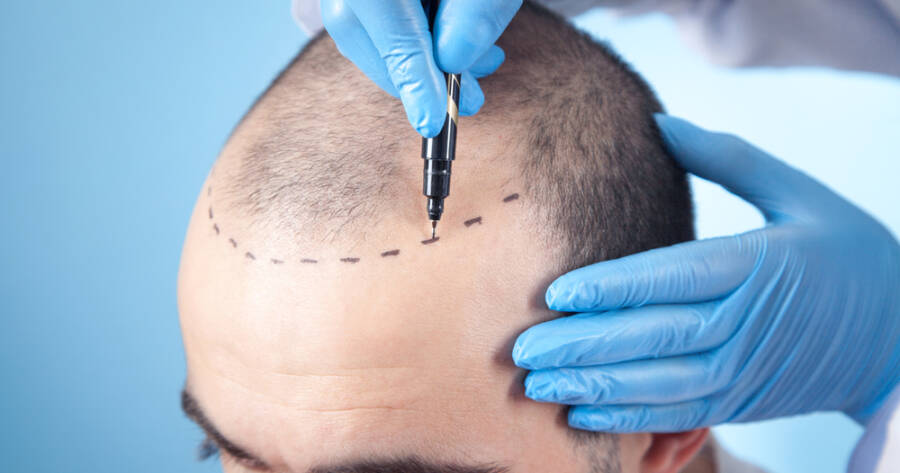Hair transplantation is a surgical procedure that involves moving hair follicles from one part of the scalp to another to restore hair growth. Advanced techniques, such as follicular unit extraction (FUE) and follicular unit transplantation (FUT), offer natural-looking results with minimal scarring and discomfort.
What is a Hair Transplant?
A hair transplant is a surgical procedure that involves the removal of hair follicles from one area of the scalp (the donor area) and their transplantation to another area (the recipient area). This procedure is typically performed to treat hair loss, which can be caused by a variety of factors, including genetics, aging, and medical conditions. Hair transplantation can help individuals regain a fuller, more youthful appearance and improve their self-confidence.1
During a hair transplant, the surgeon will first remove the hair follicles from the donor area using a specialized tool. These follicles are then carefully transplanted into tiny incisions made in the recipient area. The transplanted follicles will eventually grow new hair, which will blend in with the existing hair and provide a natural-looking result.
Hair transplantation is a complex procedure that requires skill and expertise. It is important to choose a qualified and experienced surgeon to ensure the best possible results. The procedure typically takes several hours to complete, and patients may experience some discomfort during and after the procedure. However, most individuals are able to return to their normal activities within a few days.
Regain Your Confidence with Hair Restoration
Hair loss can have a significant impact on a person’s self-esteem and confidence. For many individuals, hair transplantation can offer a life-changing solution. By restoring hair to thinning or balding areas, hair transplantation can help individuals feel more confident and attractive. This can lead to improvements in their personal and professional lives, as well as their overall quality of life.
In addition to restoring hair, hair transplantation can also help to improve scalp health. By increasing blood flow to the scalp, hair transplantation can stimulate hair growth and improve the overall condition of the scalp. This can help to prevent further hair loss and maintain a healthy head of hair.
Hair transplantation is a safe and effective procedure that can help individuals regain their confidence and improve their quality of life. If you are considering hair transplantation, it is important to consult with a qualified surgeon to discuss your options and determine if this procedure is right for you.
Natural-Looking Results with Modern Techniques
Advances in hair transplantation techniques have made it possible to achieve natural-looking results that are virtually indistinguishable from natural hair. These techniques involve the use of specialized tools and instruments that allow for precise placement of the transplanted hair follicles. This ensures that the new hair grows in the correct direction and density, creating a natural-looking hairline and overall appearance.2
In addition to improved techniques, modern hair transplantation procedures also minimize scarring and discomfort. Follicular unit extraction (FUE), a popular hair transplantation technique, involves the removal of individual hair follicles without the need for scalpels or stitches. This results in minimal scarring and a faster recovery time.
With the latest advancements in hair transplantation, individuals can achieve natural-looking results and regain their confidence without the worry of visible scars or discomfort. These techniques have revolutionized hair transplantation and made it a viable option for a wider range of individuals.
Learn More About Hair Transplantation
If you are interested in learning more about hair transplantation, there are several resources available to you. You can consult with a qualified hair transplant surgeon, who can provide you with detailed information about the procedure and answer any questions you may have. Additionally, there are numerous online resources, including reputable medical websites and patient forums, where you can find information and support related to hair transplantation.
